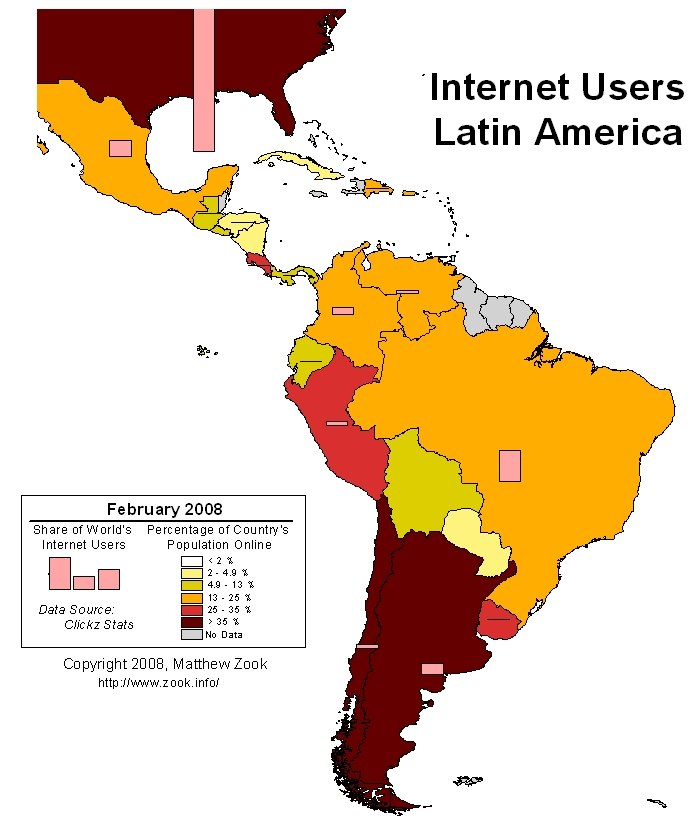Argentina isn't the only country in Latin American with talented people who have great ideas, and can development great software. It is the case that all of Latin American, even Argentina, remains an area that requires continued development. Software development, especially for start-ups is a major feat, and requires stable and reliable internet connections. A constant connection allows a company to search for resources as well as connect with an audience. It is often difficult to collaborate with a slow or unusable connection, and many developing countries seem to have this problem that plagues their technological development.

Argentina, according to
Export.gov, boasts one of the most developed broadband markets in Latin America. It leads the region with the fastest and least expensive internet connection. With 14.3 percent penetration at the end of 2012, that rate in Latin America is the highest. If you compare this to some 70 percent penetration rate in the United States, those numbers still have area for improvement.
Export.gov suggests that cable modem and ADSL internet connections are the most common forms of connection in Argentina. It is important to note that wireless and satellite broadband only makes up 1 percent of the market. Wireless technologies can help bring internet connection to more people, it has the potential to blanket large areas and reach a larger amount of people, especially in areas outside of urban areas such as Bueno Aires.
Even with the most stable network in Latin America, Argentina's internet services isn't without its problems. PR Newswire reports on ProQuest that Millicom International Cellular's recent internet infrastructure investment in major Argentinian cities only support up to 2 Megabits per second. It is safe to say that the connection may be stable for regular usage, but one that is trying to promote technological development will only fail in those conditions.
To allow start-up companies to develop their ideas and allow software developers to a greater amount of information, a faster and more reliable network infrastructure must be built in Argentina. From personal experience alone, a lackluster network connection becomes a distraction for my application development.
How a slow or inaccessible network connection can affect an application development:
- Never is a successful application worked on by a single person. Therefore, for successful collaboration, a reliable internet connection is necessary to share project information.
- Not every programmer will have expertise on every field. Therefore using the internet to research topics of interest may be necessary.
- Finally, during the development process, suggestions from the targeted audience is vital to the success of a product. Beta releases of a product via the internet is often used for trial purposes.
Ultimately, the inaccessibility of internet can cause great ideas from Argentina to never reach its planned potential.




